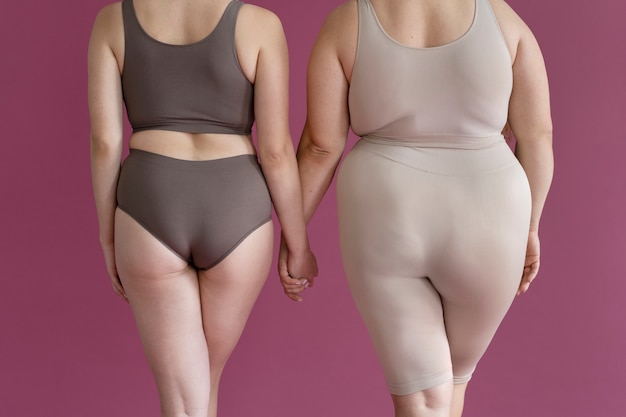
If you’re trying to lose weight, the common advice is to count calories and eat less, right? Well, not necessarily, according to Terry Fairclough, a leading personal trainer and co-founder of Your Body Programme.
As a personal trainer, I’ve encountered many opinions and questions about the best diets for weight loss. Should we count calories? How many should we eat? Should we follow a low-fat, low-carb, or high-protein diet? Is fasting or eating small, regular meals three times a day better?
While these approaches might have their place depending on body type, goals, and activity levels, one thing that shouldn’t be done is under-eating. We all know someone who drastically cuts calories to get in shape for the beach. While this might lead to some weight loss, it isn’t necessarily the best strategy.
A significant calorie deficit might cause weight loss but not necessarily fat loss, which is what most people aim to achieve. While many people might need a slight calorie deficit because of prior overeating, under-eating is not the solution.
When we eat, our bodies break down carbohydrates into glucose, a primary energy source for our cells. When we don’t need immediate energy, muscles and the liver store glucose as glycogen. Each glycogen molecule is accompanied by two to three molecules of water. When we cut calories, we primarily lose stored carbohydrates and water, not fat.
Moreover, a prolonged calorie deficit can cause the body to hold onto fat and break down protein instead. Protein is biologically active, meaning the more we have, the more fat we burn at rest. Therefore, it’s essential to eat enough calories, including all three macronutrients: fats, carbs, and protein.
Contrary to popular belief, eating fat doesn’t mean you gain fat. Fat is a crucial, long-lasting energy source, providing more energy per gram than carbohydrates or protein. During exercise, fat gets broken down into fatty acids, which fuel muscles.
Cutting calories and restricting nutrients can lead to nutrient deficiencies, affecting various systems in the body and slowing down metabolism. Health issues caused by under-eating include fatigue, malnutrition, osteoporosis, anemia, polycystic ovary syndrome, depression, hormone-related conditions, and fertility problems.
Extreme calorie deficits stress the body, causing it to release cortisol, a stress hormone that initially aids weight loss but leads to fat retention and muscle breakdown long-term. This can slow down metabolism, increase belly fat, and cause thyroid issues, further complicating weight loss.
Under-eating can also affect digestion and nutrient absorption, impacting training results and overall health. It can disturb sleep, as blood sugar drops cause adrenaline to be released, waking you up and affecting your liver, immunity, exercise, and productivity.
I’ve met bodybuilders who restrict calories to get as lean as possible for competitions but then increase their intake post-competition. However, improper calorie cycling can lead to illness.
Continuous calorie cutting can cause the body to enter famine mode, where any excess calories are stored as fat. Therefore, it’s crucial to consume the right number of calories and macronutrients for your specific body type, goals, activity level, height, weight, and age.
I created the Your Body Programme (YBP) to help people determine their calorie needs based on their body types. Ensuring proper nourishment helps keep your metabolism active. My program shows that increasing calorie intake can help lose fat.
Make sure to eat plenty of lean proteins like beef, chicken, eggs, fish, pulses, legumes, tofu, and tempeh if you’re vegan. Also, consume healthy carbohydrates from fruits, vegetables, sweet potatoes, quinoa, brown rice, and whole-wheat pasta, and healthy fats from avocado, nuts, seeds, olives, and olive oil.
Terry Fairclough is a founder of Your Body Programme, a Personal Trainer, and a Nutritional Therapist.